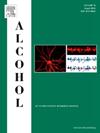冲动性对抑郁症和药物滥用障碍大学生自杀行为的中介作用。
IF 2.9
4区 医学
Q3 PHARMACOLOGY & PHARMACY
引用次数: 0
摘要
背景:酒精和药物依赖个体一直表现出较高的冲动性,一些研究表明,记录在年轻人中的冲动性预示着未来的酒精滥用。研究还表明,冲动性较高的抑郁个体即使在抑郁程度较轻的情况下也更有可能报告自杀念头,这可能表明冲动性比抑郁症状的严重程度更能预测自杀行为。目的:探讨冲动性对抑郁、酒精和药物滥用障碍学生自杀和自残行为的中介作用。材料和方法:参与者是阿尔斯特大学(NI)和莱特肯尼理工学院(ROI)的一年级本科生(n=1829),他们是作为世界心理健康国际大学生倡议的一部分招募的。参与者使用wmh复合国际诊断访谈筛选量表(CIDI-SC)完成了一项在线调查。中介分析分三个阶段进行。结果:抑郁症、药物使用障碍、自杀意念、自杀计划、自杀企图和自残的发生率较高。冲动性在抑郁与自杀行为、物质使用障碍与自杀行为之间起部分中介作用。冲动与自杀意念、自杀企图和自残显著相关,但与自杀计划无关。男性更容易冲动,更高程度的抑郁和物质使用障碍与更高的冲动有关。结论:本研究的主要发现强化了冲动性在抑郁与自杀、物质使用与自杀之间的中介作用。在评估弱势学生的自杀风险时,大学福利服务部门可能会考虑是否筛查冲动,而不是药物滥用,可能更有益,更不容易漏报。本文章由计算机程序翻译,如有差异,请以英文原文为准。
The mediating role of impulsivity on suicidal behaviour among higher education students with depression and substance abuse disorders
Background
Alcohol and drug dependent individuals have consistently exhibited elevated impulsivity and some studies have indicated that impulsivity recorded in young adults predicts future alcohol abuse. Research also indicates that depressed individuals with higher impulsivity are more likely to report suicidal ideation even when they are less depressed, which may indicate that impulsivity could more strongly predict suicidality than severity of depressive symptoms.
Objective
The aim of this study was to investigate the mediating role of impulsivity on suicidal behaviour and self-harm among students with depression, alcohol and substance abuse disorders.
Materials and methods
Participants were first-year undergraduate students (n = 1829) across Ulster University (NI) and Letterkenny Institute of Technology - now known as Atlantic Technological University Donegal (ROI), who were recruited as part of the World Mental Health International College Student Initiative. Participants completed an online survey utilising the WMH-Composite International Diagnostic Interview Screening Scales (CIDI-SC). Mediation analyses were conducted in three different stages.
Results
A high prevalence of depression and substance use disorders, suicidal ideation, plans, attempts and self-harm were observed. Impulsivity was found to partially mediate the association between depression and suicidal behaviours and substance use disorders and suicidal behaviours. Impulsivity was significantly associated with suicide ideation, attempts and self-harm, but not suicide plans. Males were more likely to be impulsive, and higher levels of depression and substance use disorders were related to higher impulsivity.
Conclusions
The main findings of this study reinforce the role of impulsivity in mediating the relationship between depression and suicidality and substance use and suicidality. College wellbeing services may consider whether screening for impulsivity, rather than for example substance abuse, could be more beneficial and less prone to under-reporting, when assessing for suicide risk among vulnerable students.
求助全文
通过发布文献求助,成功后即可免费获取论文全文。
去求助
来源期刊

Alcohol
医学-毒理学
CiteScore
4.60
自引率
4.30%
发文量
74
审稿时长
15.6 weeks
期刊介绍:
Alcohol is an international, peer-reviewed journal that is devoted to publishing multi-disciplinary biomedical research on all aspects of the actions or effects of alcohol on the nervous system or on other organ systems. Emphasis is given to studies into the causes and consequences of alcohol abuse and alcoholism, and biomedical aspects of diagnosis, etiology, treatment or prevention of alcohol-related health effects.
Intended for both research scientists and practicing clinicians, the journal publishes original research on the neurobiological, neurobehavioral, and pathophysiological processes associated with alcohol drinking, alcohol abuse, alcohol-seeking behavior, tolerance, dependence, withdrawal, protracted abstinence, and relapse. In addition, the journal reports studies on the effects alcohol on brain mechanisms of neuroplasticity over the life span, biological factors associated with adolescent alcohol abuse, pharmacotherapeutic strategies in the treatment of alcoholism, biological and biochemical markers of alcohol abuse and alcoholism, pathological effects of uncontrolled drinking, biomedical and molecular factors in the effects on liver, immune system, and other organ systems, and biomedical aspects of fetal alcohol spectrum disorder including mechanisms of damage, diagnosis and early detection, treatment, and prevention. Articles are published from all levels of biomedical inquiry, including the following: molecular and cellular studies of alcohol''s actions in vitro and in vivo; animal model studies of genetic, pharmacological, behavioral, developmental or pathophysiological aspects of alcohol; human studies of genetic, behavioral, cognitive, neuroimaging, or pathological aspects of alcohol drinking; clinical studies of diagnosis (including dual diagnosis), treatment, prevention, and epidemiology. The journal will publish 9 issues per year; the accepted abbreviation for Alcohol for bibliographic citation is Alcohol.
 求助内容:
求助内容: 应助结果提醒方式:
应助结果提醒方式:


